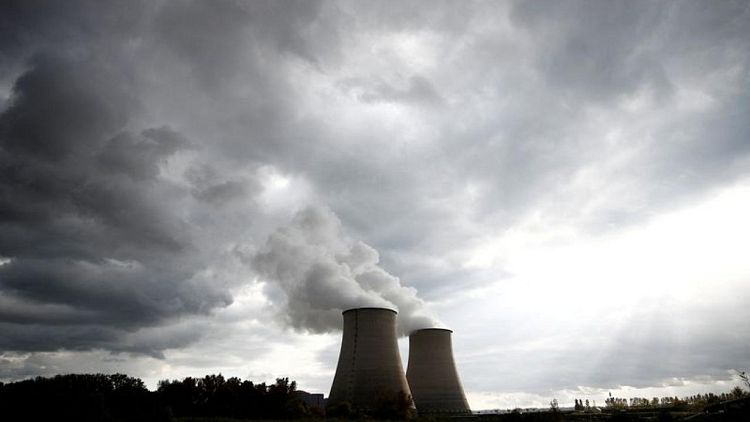By Forrest Crellin
PARIS - Strikes at France's nuclear power plants have affected about a third of its reactors, in many cases delaying maintenance work and complicating operator EDF's efforts to boost production ahead of winter.
Currently 20 out of 56 reactors have been impacted, a union official said on Wednesday. Of these, maintenance plans of 17 have been disrupted, with some seeing their restart schedule delayed by a few days and some by up to three weeks. [POWER/FR]
THE EFFECT ON SUPPLY
France's nuclear output was already expected to hit a 30-year low in 2022 due to a record number of reactor outages for corrosion issues and planned maintenance, at a time when Europe is facing an energy crisis because of the war in Ukraine.
Rolling strikes over wages by the FNME-CGT union at some plants have added to the problem.
Maintenance delays at nine reactors have caused the loss of 4.4 terawatt hours (TWh) of nuclear power generation - nearly a quarter of the power produced in September - compared to the maintenance schedule before the strikes began, data from consultancy Energy Aspects showed.
France is a net importer of electricity and the strikes will further boost power imports, particularly from Britain, the consultancy said.
Power grid operator RTE warned on Tuesday that prolonged strikes further delaying the restart of reactors could have "heavy consequences" for electricity supply over the winter.
Britain's National Grid has also cited maintenance issues at French nuclear reactors as a factor that could affect UK energy supplies this winter.
RTE still expects France's nuclear power production to rise to between 40 and 45 gigawatt (GW) a day in December and January, up from 25-30 GW at the end of October.
But it said the strikes raise a question mark over power availability for November.
The strikes come on top of separate blockades at oil refineries over the past three weeks, which have disrupted fuel supplies.
WHAT'S THE COST?
FNME-CGT secretary general Sébastien Menesplier said a one day outage at an EDF reactor usually cost about 1 million euros ($976,600) but that at current electricity prices that could be "5 to 10 times more".
With the baseload November power price around 587 euros ($573) per megawatt-hour (MWh), the cost of a reactor not running is probably not far from 10 million euros per day, said Emeric de Vigan, vice president of power at data and analytics firm Kpler.
However, French forward baseload contracts have fallen from highs over 1,000 euros in late August, as maintenance delays at EDF have been mostly be priced in.
"With that being said, events like this come at the worst possible time, when French nuclear is needed the most, and even more so for the coming months," Rystad analyst Fabian Ronningen said.
WHAT'S THE LEGAL POSITION?
Workers are legally obligated to ensure the continuity of the public electricity service, requiring them to raise production or resume operations to return reactors to the grid to avoid power cuts.
Vital services such as hospitals, road traffic signs, and security infrastructure are among the most protected public infrastructure from power cuts. Cuts to households would only be used as a last resort to protect vital infrastructure.
Contracts are held between the grid operator and industrial companies and businesses that can cover the first cuts in exchange for compensation.
When lower production threatens to reduce supply to the point where it can't meet demand, RTE can ask striking workers to return some power to the grid to fix the imbalance.
For example, RTE requested workers to raise power levels on Sept. 29 to ensure there was enough electricity to meet demand, and striking workers complied.
But RTE cannot requisition workers. That power belongs to the CEO of EDF, following a decision by the Council of State after a two month strike in 2009 affected maintenance at 17 reactors.
However, EDF can only exercise this power to avoid serious consequences to electricity supply - such as power cuts and blackouts - and only if data from RTE showed a need for increased supply and there were no alternatives.
($1 = 1.0236 euros)
